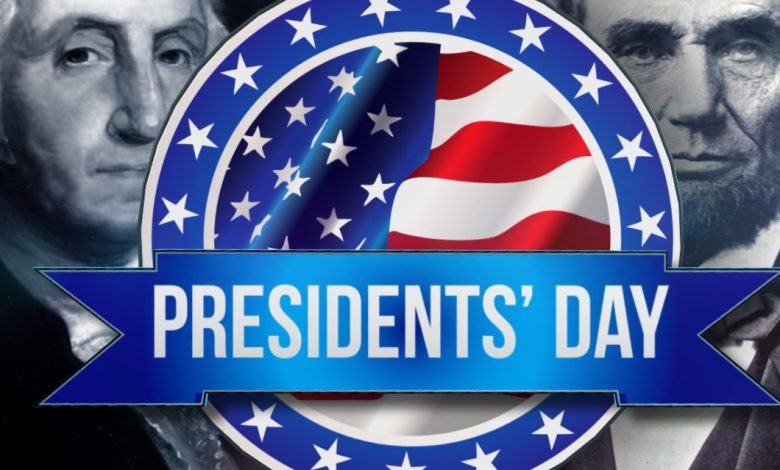President day 2025 usa

Presidents’ Day, celebrated annually on the third Monday of February, is a significant national holiday in the United States. In 2025, Presidents’ Day falls on February 17. This day is dedicated to honoring the leadership and contributions of past U.S. presidents, particularly George Washington and Abraham Lincoln, whose birthdays are in February. Over time, the holiday has evolved into a broader recognition of all individuals who have served as the nation’s chief executive.
The Origins and History of Presidents’ Day
Presidents’ Day traces its origins back to the early days of American history. The holiday was initially established in 1879 to honor George Washington, the first president of the United States. Originally celebrated on February 22, Washington’s birthday, it was recognized as a federal holiday to commemorate his leadership and foundational role in shaping the nation.
In 1971, the Uniform Monday Holiday Act was passed to provide Americans with more three-day weekends by shifting certain holidays to Mondays. As part of this reform, Washington’s Birthday was moved to the third Monday of February, and it gradually became known as Presidents’ Day. The holiday was informally expanded to honor Abraham Lincoln, whose birthday is on February 12, and later, it became a day to recognize all U.S. presidents.
Although the federal government still officially recognizes the day as “Washington’s Birthday,” most states and citizens refer to it as Presidents’ Day. The holiday serves as an opportunity for Americans to reflect on the nation’s history, leadership, and the challenges overcome by its presidents.
The Significance of Presidents’ Day
Presidents’ Day holds deep historical and cultural importance. It is a time to remember the contributions and sacrifices of past leaders who have guided the country through pivotal moments. Some of the most celebrated presidents, such as George Washington, Abraham Lincoln, Thomas Jefferson, Theodore Roosevelt, and Franklin D. Roosevelt, played crucial roles in shaping America’s values, policies, and global influence.
Washington, as the nation’s first president, set important precedents, including the two-term tradition and the peaceful transition of power. Lincoln’s leadership during the Civil War and his role in ending slavery with the Emancipation Proclamation left an enduring legacy. Franklin D. Roosevelt steered the country through the Great Depression and World War II, implementing programs that continue to influence the nation today.
Presidents’ Day serves as a moment to reflect on these contributions and consider how leadership shapes the nation’s future. Schools, museums, and historical societies often use the holiday as an opportunity to educate the public about the presidency and the democratic system.
How Presidents’ Day is Celebrated
Presidents’ Day is marked by various traditions and observances across the country. While it is a federal holiday, meaning that government offices and many businesses are closed, different states and communities celebrate in unique ways.
Educational Programs and Historical Reflections
Many schools and organizations use the holiday as a time to teach students about the lives and achievements of past presidents. Museums, including Mount Vernon (Washington’s estate), the Abraham Lincoln Presidential Library, and other historic sites, often hold special exhibitions, lectures, and reenactments.
Public and Civic Events
Some cities host parades, concerts, and ceremonies to honor past presidents. In Washington, D.C., events at the National Archives and the Smithsonian Museums highlight presidential history and American democracy.
Retail Sales and Commercial Celebrations
Over the years, Presidents’ Day has also become associated with major retail sales. Many businesses take advantage of the long weekend to offer discounts on appliances, electronics, and automobiles, making it one of the biggest shopping days of the year.
Community Service and Patriotism
Some Americans choose to observe Presidents’ Day by engaging in community service or activities that promote civic engagement. Volunteering, visiting historical landmarks, or reflecting on the country’s democratic principles are meaningful ways to commemorate the holiday.
Presidents’ Day 2025: What to Expect
As Presidents’ Day 2025 approaches, several special events and celebrations are expected to take place across the nation. Given the increasing integration of technology into educational outreach, virtual tours of presidential landmarks and interactive history lessons may be more widespread.
Government agencies and institutions like the National Park Service are likely to offer free admission to various national landmarks, encouraging people to explore the country’s rich history. Additionally, local and state governments may organize ceremonies and public discussions about the significance of presidential leadership in contemporary society.
Presidents’ Day and the American Identity
Presidents’ Day is more than just a holiday; it is a reflection of American values and history. It encourages citizens to appreciate the achievements and struggles of past leaders while considering the responsibilities of governance and democracy. The holiday reminds people of the resilience, vision, and leadership required to uphold the nation’s ideals.
In an era of political division and evolving societal challenges, Presidents’ Day serves as a reminder of the importance of unity, civic responsibility, and respect for democratic institutions. By learning from past leaders, Americans can continue to build a stronger, more inclusive future.




